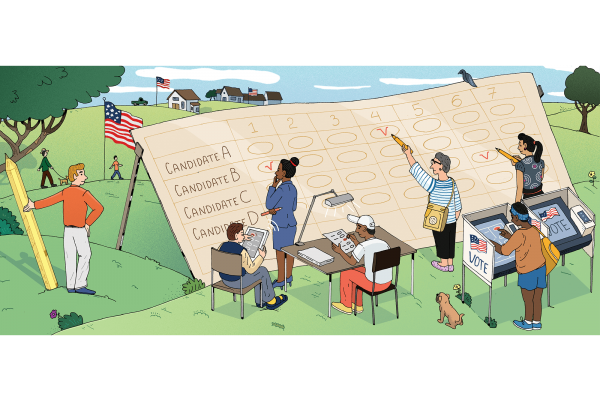THE MIDTERM ELECTION season is already underway, with a great deal at stake. In the face of the rush of political ads, phone calls, debates, and more, I’m reminded of the Apostle Paul’s timeless words that the “fruit of the Spirit is love, joy, peace, patience, kindness, goodness, faithfulness, gentleness, and self-control” (Galatians 5:22-23). These fruits, or virtues, don’t easily translate into the messiness of politics, but they are desperately needed today. Sadly, our electoral system increasingly rewards and perpetuates antithetical “fruits”—such as contempt, vitriol, hate for the “other side,” and fear. The root causes include media echo chambers, gerrymandered districts, disinformation promulgated on social media, and partisan primaries—the negative aspects of which receive precious little attention. Until we change the perverted incentives that have become hardwired into our electoral system, our politics will remain stuck in a vicious cycle of acrimony and stalemate.
Read the Full Article

